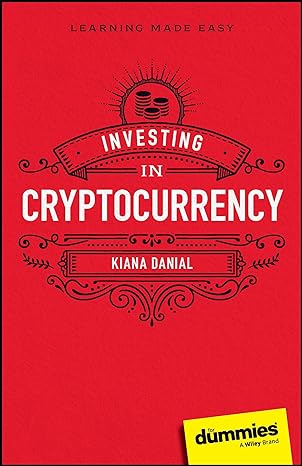Question
1) Derivative markets differ from stock and bond markets in that: A. derivative products are a zero sum game B. derivatives are not issued by
1) Derivative markets differ from stock and bond markets in that:
A. derivative products are a zero sum game
B. derivatives are not issued by the company that the contracts relate to
C. both A and B
D. none of the above
2) An investor buys a Call option on a stock for $5. The strike price is $40 per share. On the expiry date the market price of the stock is $42 per share.
A. The investor has made a loss of $5
B. The investor has made a profit of $2
C. The investor has made a profit of $3
D. The investor has made a loss of $3
3) A Put option with a strike price of $60 on a stock trading at $50 and expiring in one months time:
A. has zero time value
B. has zero intrinsic value
C. would trade for $10 in the options market
D. is in-the-money
4) Suppose you are looking at two different Call options on the same stock with the same expiry date, but one has a strike price of $40 and the other has a strike price of $50. The option with strike price $50 has:
A. a lower premium than the option with strike price $40
B. a higher premium than the option with strike price $40
C. a premium of $10
5) Which of the following investments would require margin?:
A. buying a put option
B. buying a futures contract
C. A and B
D. none of the above
Step by Step Solution
There are 3 Steps involved in it
Step: 1

Get Instant Access to Expert-Tailored Solutions
See step-by-step solutions with expert insights and AI powered tools for academic success
Step: 2

Step: 3

Ace Your Homework with AI
Get the answers you need in no time with our AI-driven, step-by-step assistance
Get Started


